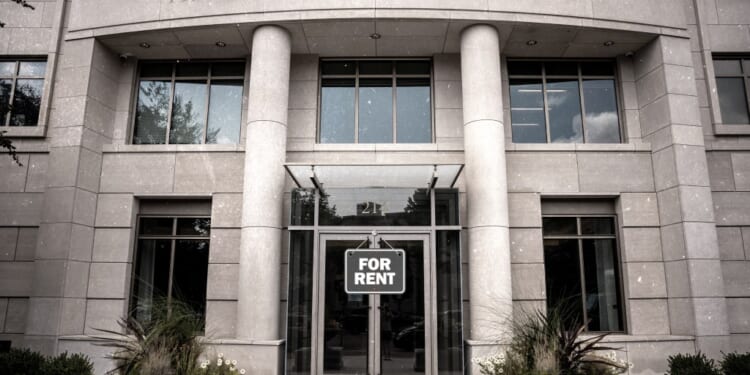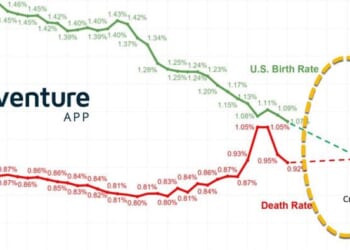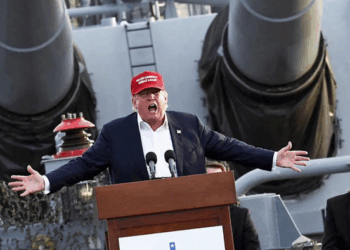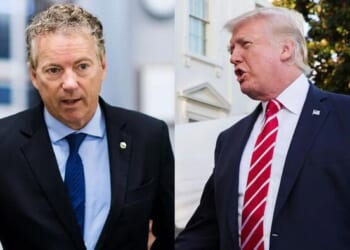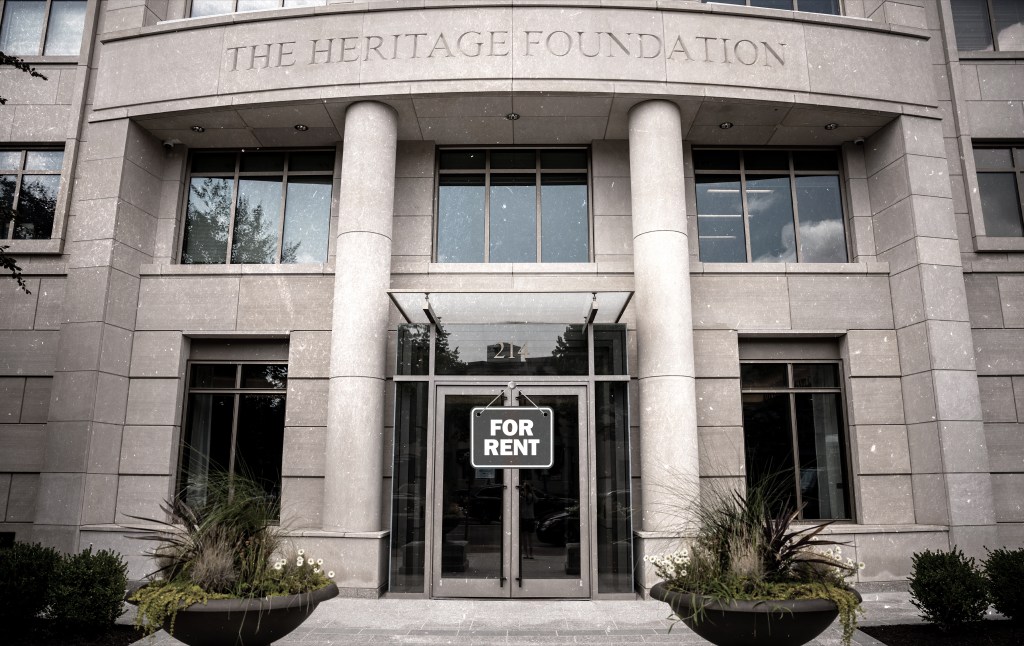
Right-wing populism has been a part of the Republican coalition for a long time and has at times also has been present in the Democratic Party (in such a figure as George Wallace) and the much-degraded organ that still calls itself the Libertarian Party, as well as in independent movements (as with Ross Perot). But Wallace-style populism seldom has been the dominant power in the party and has never enjoyed the kind of commanding intraparty political position it currently enjoys. There is little or no reason to expect that populism to maintain its dominance and several reasons–incompetence, stupidity, rampant self-dealing–to expect that it will not. One expects here a demonstration of Stein’s Law: “If something cannot go on forever, it will stop.”
If you know how to do a particular thing—dance, or rebuild an engine, or play the harpsichord—it may be painful to watch someone who is very bad at it try to do it. I used to teach persuasive writing, and it was really something to watch Roberts try to deploy a nakedly sophomoric rhetorical strategy that even my sophomores would have laughed at. In case you did not appreciate what he was doing rhetorically: Roberts made some remarks about the recent business with the daft little neo-Nazi Nick Fuentes, during which he apologized for his use of the phrase “venomous coalition.” Poor choice of words, you know. You’ll notice that he did not really apologize for anything else in particular, or retract anything else. He did say that he would be better at figuring out how to not be pulling his oar along with the neo-Nazis “even when my friend Tucker Carlson needs challenging,” but he did not, in fact, challenge his friend Tucker Carlson. This is a classic—cheap—rhetorical strategy: Concede error in a relatively minor and insignificant thing without conceding the broader error or moving to correct it, hoping that the apology will kind of add a flavor of regret to the whole undertaking, after which one can go about saying: “I addressed this in my earlier remarks.” I’d have given him a solid C if he were an undergraduate, but, as the leader of what was, until his time at its helm, one of the most important organizations in American politics, Roberts has earned the big F for failure.
It is not impossible to imagine an organization such as the Heritage Foundation trying to turn itself around, but Heritage will have the same problem as the Republican Party it serves: Recovering lost popularity or position is not the same thing as recovering lost credibility. Trump, to take the most obvious example, saw his popularity recover after his defeat in the 2020 presidential election and his attempted coup d’état, and he even won his old position back—but he did not recover whatever little credibility he had—credibility is not necessary to Trump, who is, in reality, a cult leader. Trump, being a celebrity rather than a conventional politician, has little use for credibility: In fact, he is—perverse as it may seem—the most popular among those who are the least convinced of his credibility, among those superfans who rejoice in his mendacity and admire it. Trump himself boasts of using hyperbole, as his ghostwriter once put it, as a marketing tool, and, if you ask a committed Trump cultist, they will speak not regretfully but delightedly of his gift for bullshit. Salena Zito earned a lifetime spot in Bartlett’s Familiar Quotations for her famous formulation—“taking Trump seriously, not literally”—but what is that if not a blessing of the fact that one cannot trust a word that comes out of his mouth?
Unlike Trump, the Republican Party and the Heritage Foundation need credibility—but they will not have it. No one will take the Republicans seriously on debt, spending, national security, foreign policy, trade, or character for a generation or more. Heritage may settle on the right policy as often as not, but it will have the reputation of producing whatever policy arguments its patrons demand and whatever arguments you’d like to purchase for $50/month. Geddy Lee once sang of a hero: “His mind is not for rent/ To any god or government.” Heritage, on the other hand, has hung a great big “Vacancy” sign around its collective frontal lobe.
Donald Trump currently presides over the federal government, and Kevin Roberts has chosen his god. And one might at this time ask, fairly and with charity; What exactly is the point of the Heritage Foundation?
Economics for English Majors
Here is a thing that perplexes me: If you believe that U.S. trade relations with China present a national security threat—and there is a perfectly defensible argument for that—why on Earth would you try to address that problem with … a sales tax on American consumers?
The answer, of course, is this: Even though there is a good reason to regard China as a national security problem, and to think of U.S. dependence on Chinese providers for certain critical goods (such as rare earth minerals) as an acute problem, the national security argument is, in reality, almost entirely pretextual.
What Americans demand of their government vis-à-vis China is economic protection for politically connected domestic business interests with a minimum of disruption of the economic benefits associated with U.S.-Chinese trade, i.e., access to Chinese goods, which may be attractive for reasons having to do not only with price, access to the Chinese market for U.S. exporters from farmers to manufacturers, and access to China-entangled global supply chains for U.S. producers. If you think that China is an existential threat, you don’t address that with a 45 percent sales tax on plastic squirt guns.
Donald Trump and Joe Biden have different approaches to national security and different (not different enough, in my view) views of the economy, but it is worth bearing in mind that the Biden administration kept most of the tariffs from the first Trump administration in place—not because these represent good policy touching national security or the overall economy but because relatively inefficient U.S. firms demand protection from Chinese competitors, just as they demanded protection from Japanese competitors a generation ago and just as they probably will be demanding (more) protection from Indian firms in a few years. Underperforming American manufacturers complain that they cannot compete with cheap Chinese labor, but, then, many of them do not compete very well against expensive German labor, either.
If you want to see how quickly the national security pretext can be deployed in the service of ordinary parochial business interests, witness the ridiculous talk of Marco Rubio—who is not an imbecile but sometimes lately does a pretty good impersonation of one—insisting that sugar subsidies are a national security priority. Sometimes, Fate is a poet, and it pleases me to no end that Rubio’s sugar daddies in Florida are literally in the sugar business—along with Donald Trump’s being a retired game show host, it is difficult to imagine anything more perfectly and poetically emblematic.
When the junta in Beijing decided that U.S. trade policy was a major threat to its interests, China’s bosses did not just drop a sales tax on U.S. soybean imports in the hopes that Chinese animal feed producers would do the government’s national security work on their own steam and at their own expense. They put out the word that there were going to be no more orders of U.S. soybeans until further notice. And so it was.
I do not care much for that kind of heavy-handedness when it comes to trade, but where there are genuine national security issues, these often will trump trade on our priority list. It is not as though Washington doesn’t know how to do this: The United States had almost no trade with the Union of Soviet Socialist Republics during the Cold War, when the world’s premier socialist power was threatening the free world with nuclear annihilation. The U.S. currently maintains trade embargoes targeting Cuba, Iran, and North Korea. We did not fight the Nazis with a sales tax. Serious security measures may impose real economic costs on Americans: There is much profitable business that Americans could be doing with Cuba and Iran, though probably less so in the case of North Korea—the Norks don’t have two nickels to rub together, though one imagines they would be happy to import a great deal of food and other necessities from the United States if only they had the means to pay for it. (North Korea cannot consume much because it does not produce much: Say’s Law, y’all—it is a bitch.) But intelligently or not, Washington has decided that national security concerns make it worthwhile to bear these economic costs.
Depending on how narrowly you want to squint, modern U.S. policy toward China took its early trajectory from either 1.) optimism or 2.) wishful thinking. When Deng Xiaoping decided that “it is glorious to get rich” (it is not clear that he actually used the phrase attributed to him) and began his program of partial but significant liberalization of the Chinese economy in the late 1970s, optimistic globalists took this as an encouraging sign. When China began in earnest to seek to join multilateral institutions such as the World Trade Organization in the 1990s, Washington thought it had in its grasp a possible post-Cold War success story, a happy ending at last.
The theory—which turned out to be mistaken but which was not preposterous—was that as the Chinese people grew more affluent, the entrepreneurs, the affluent professionals, and the rest of the emerging bourgeoisie would become anxious to secure their property rights and new standard of living against arbitrary state action, demanding some form of political liberalization and democratic accountability. The West failed to understand, among other things, that elections are not the only way to maintain accountability, and that China’s autocratic, one-party system is, in fact, capable of giving the Chinese people a sense of accountability that is meaningful (to the Chinese people) if limited: Chinese public accountability is a top-down rather than bottom-up affair. Beijing does not like to talk about it outside the family, but Chinese authorities do respond to things such as public protests and popular criticism. Corruption and incompetence at lower levels of administration often are punished ruthlessly by the higher levels of administration. That being the case, it was not foreordained that economic innovation would lead to political liberalization in China—however much Washington may have hoped, or wished, that that would be the case. Similar surfeits of optimism are, in fact, a recurring theme of U.S. foreign policy, as the late Dick Cheney and his colleagues learned the hard way in Iraq.
One thing that Americans have made very clear: We are not willing to endure very much economic pain in order to achieve national security goals. If a U.S. military adventure in the Middle East sends gas prices up a buck or two, Americans develop an acute case of sudden-onset pacifism. Republicans just got a straight throat punch at the polls in part because Americans believe, with good reason, that Trump’s idiotic trade policies and general incompetence and unseriousness are one of the reasons inflation remains high, why people of modest means are getting painfully hammered at the grocery store, why so many young people still are having a heck of a hard time affording a first house. If you’ve been in this argument for a while, you will be familiar with the standard rhetorical strategy of economic nationalists: When critics point out that their economic ideas are silly and destructive, they reply: “You must not care about defending ourselves from China!” As though we could defend ourselves from China with a sales tax.
One of our repeated themes here is that good economic thinking will guide us toward good economic solutions to economic problems. But some problems are not economic in nature, or not mainly economic in nature, and are not going to be very well mitigated with economic policies—especially crude, lazy policies such as import taxes. Our problem with Chinese rare earth exports and semiconductors is not the profit margin Chinese firms make on their magnets or insufficient chip fab employment growth in the United States—our problem is the missiles and warships and military satellites with components that require those magnets and rare earth minerals. A Chinese near-monopoly on lanthanides is very different from a Swiss or Spanish or Lithuanian near-monopoly—and not for reasons that are fundamentally economic.
As with so much of what the Trump administration gets wrong, trying to address China-related security concerns by means of tariffs is fundamentally an error rooted in laziness. The administration simply is not willing to do the work at hand, in part because Trump is himself lazy and unserious and in part because so many of his senior staffers are more interested in using their positions as platforms from which to launch media careers than they are in doing their jobs. Which is to say: I’ll believe they are serious about China when they act like they are serious about China.
Words About Words
A lawyer friend remarked that Donald Trump’s lawyers seem to be using the words opulence and elegance interchangeably in this filing. E.g.:
Thereafter, President Trump’s stewardship of the Trump Organization has made it and the Trump name synonymous not only with New York City real estate but also with worldwide excellence, luxury, and opulence.
These diverse businesses depend on public patronage and public participation for their revenue; in turn, the demand to visit Trump Organization properties depends in large part on President Trump’s well-earned reputation as a shrewd businessman—and his name’s association with excellence, luxury, and elegance—which have proven vital to the values of many of these businesses and properties.
Opulence means extraordinary wealth displayed in a luxurious fashion; elegance implies grace and stylishness, which often requires the very opposite of an opulent display: restraint. Trump does love to have his boasts written into his legal filings, and it is not unthinkable that this stuff was dictated by the president himself, which would explain any traces of illiteracy.
Luxury is a funny word, too: For many, many years, luxury was a term of abuse: To say that a man lived in luxury was a criticism of his character, not praise of his success. Luxury had connotations of sinfulness and unmanliness. But now we talk about luxury goods, luxury travel, luxury socks, etc. Decadent has taken a similar path: Decadence means decay but came to be associated with the luxurious excesses of the rich and the powerful in the Roman Empire and other dying societies. Soon, desserts were advertised as decadent (and sometimes as sinful) but now hôteliers boast about their decadent suites.
Modern luxury consumption can be pretty gross at times, in part because both consumers and providers have, like Trump’s lawyers, conflated elegance and opulence. There is something positively Neronic about our $6,000 cheeseburgers:
The Golden Boy’s burger patty is made with chuck short ribs and A5 Japanese Wagyu beef, the world’s most coveted beef. The meat is marbleized with fat that literally melts in your mouth. Depending on the grade, wagyu beef can cost anywhere from $50 to $200 per pound. That’s just the beginning of the list of bougie ingredients in the Golden Boy. The tender beef patty comes topped with white truffles, Alaskan king crab, Beluga caviar, English cheddar, onion rings, and Paleta Iberico Bellota ham; all stacked inside a gold-leaf-covered saffron-infused bun.
Dom Pérignon, the iconic, vintage bubbly from the heart of France’s Champagne region, infuses luxury into both the bun and battered onion rings that adorn this burger.
(It seems that only the foie gras is missing—it is banned in many countries, though not in the Netherlands, where that ridiculous burger is sold. But it is unfashionable there: The royal family announced that it would no longer be served in their household.)
Modern luxury very often is the opposite of elegant and far from refined. Ours is the age of a toilet bowl plated in gold and engraved with a logo from Hermès or Louis Vuitton or Gucci.
The more you think about consumer habits, the more understandable our degraded political culture becomes.
Down to the Puritan marrow of my bones
There’s something in this richness that I hate.
Elsewhere
You can buy my most recent book, Big White Ghetto, here.
You can buy my other books here.
You can check out “How the World Works,” a series of interviews on work I’m doing for the Competitive Enterprise Institute, here.
You can get a load of me and Jonah and Peter Meijer solving the nation’s problems over drinks here.
In Closing
I did not know Dick Cheney, and I disagreed with his views on many issues. But I agree entirely with his advice: Do the work in front of you. Cheney was the opposite of the self-aggrandizing circus performer common in Washington today: a workhorse, not a show pony, a man who valued institutions and understood his role in them. I should start telling myself every morning: Do the work in front of you—there is enough to keep you busy. It is a good idea, though I’d give even odds that the way I’m most likely to end up resembling Dick Cheney is by shooting someone in the face. We all have those days–don’t we? Don’t we?

